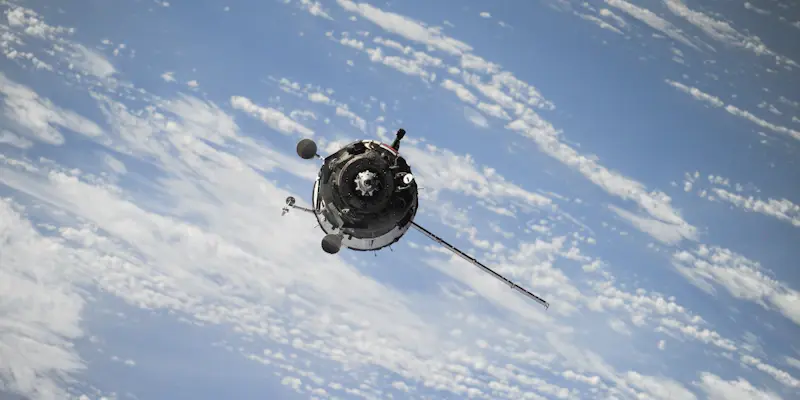Amazon is set to launch a significant batch of satellites for its Project Kuiper on April 9th. The “KA-01” mission, utilizing a United Launch Alliance (ULA) Atlas V rocket, will deploy 27 satellites at an altitude of 280 miles. This launch, occurring at Cape Canaveral, Florida, marks Amazon’s strategic foray into providing global low-latency satellite broadband.
Enhancing Global Connectivity
Project Kuiper aims to enhance worldwide connectivity through a network of over 3,200 low Earth orbit (LEO) satellites. With more than 80 launches already secured, Amazon is poised to scale up its satellite constellation rapidly.The immediate goal is to begin customer service by the end of the year. Rajeev Badyal, VP of Project Kuiper, underscores the importance of real-flight data despite extensive ground testing.The satellites in this initial deployment feature sophisticated phased array antennas, advanced processors, and improved solar arrays. To mitigate the impact on ground-based astronomical observations, Kuiper has developed a dielectric mirror film to reduce satellites’ visibility.The KA-01 mission sets a record for the heaviest payload carried by an Atlas V rocket, requiring its most powerful configuration with five solid rocket boosters. Post-launch, the Kuiper team in Redmond, Washington, will manage the satellite operations. Following the KA-01 mission, Amazon aims to expedite the production and launch of additional satellites. The subsequent mission, KA-02, is already in progress.The ultimate goal is to establish a seamless data circuit between satellites and customer terminals, enhancing global internet connectivity.
Amazon’s Ambitious Plans
Amazon’s ambition for Project Kuiper extends beyond just providing internet access. The company envisions a world where fast, reliable, and low-latency internet is accessible even in the most remote regions.The phased array antennas and advanced processors built into each satellite aim to deliver high-capacity data transfer rates, ensuring minimal lag for users. The enhanced solar arrays provide the necessary power for prolonged satellite operations, ensuring that these satellites remain functional for extended periods.Moreover, the dielectric mirror film developed by Kuiper is a testament to Amazon’s commitment to reducing the impact of their satellites on astronomical observations. This innovative approach ensures that while the satellites are functional, they do not obstruct or interfere with astronomical studies.Such measures highlight the balance Amazon seeks between technological advancement and environmental/astronomical considerations.
The selection of Cape Canaveral as the launch site further underscores the significance of this mission. This historic site has been the launch point for numerous other significant space missions, and Project Kuiper’s inclusion in this list adds to its prestige.The successful deployment of the 27 satellites will set a strong precedent for future launches, boosting confidence in Amazon’s capabilities in the space industry.
Future Directions and Implications
Amazon is gearing up for an important milestone with its Project Kuiper by launching a large batch of satellites on April 9th. This mission, labeled “KA-01,” will utilize an Atlas V rocket from United Launch Alliance (ULA) to send 27 satellites into space. The satellites will be deployed to an altitude of 280 miles above Earth. The launch will take place at Cape Canaveral in Florida, which holds historical significance for its numerous space missions.This event marks Amazon’s strategic entry into the increasingly competitive field of global low-latency satellite broadband services. By providing this kind of internet connectivity, Amazon aims to deliver high-speed internet to remote and underserved areas around the world, bridging the digital divide.This effort is part of a larger trend in the tech industry as companies race to develop satellite constellations that promise to revolutionize global internet access. Amazon’s Project Kuiper is their ambitious venture into space-based internet, demonstrating their commitment to innovation and connecting people worldwide.

